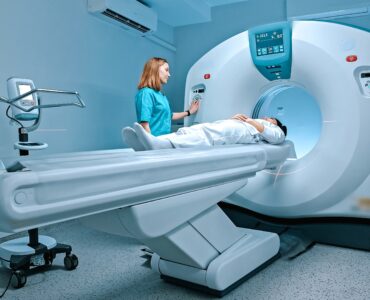by Luke Smith
You’ve found a career that combines your love of language with your desire to help people. A career as a medical translator is both an art and a science. It is at once a creative and caring profession.
Yet, you need much more than superb linguistic skills if you want to thrive as a medical translator. You also need robust medical knowledge as well as a keen capacity for empathizing and communicating with people in their time of greatest need. This article examines the top three skills you need to thrive as a medical translator.
1. Health Literacy
If you want to build a long and successful career as a medical translator, then significant health literacy is a must. After all, you can’t possibly convey complex and critical medical information to patients and families if you don’t first thoroughly understand the subject matter yourself.
Cultivating your own health literacy means developing a deep understanding of diseases and conditions, how they occur, what they do, and how they are treated and prevented. This also, inevitably, requires you to develop a more comprehensive medical vocabulary (and in multiple languages) than most laypersons will have access to.
By developing your medical knowledge, you’re also going to be better equipped to translate effectively, avoiding the many pitfalls of literal translation. Language, after all, is very much embedded in the culture in which it is used and from which it originates.
Health literacy can help you make more informed choices when communicating medical information across both linguistic and cultural contexts. This better equips you to ensure accuracy and comprehensibility in often highly stressful and rapidly evolving contexts.
2. Cultural Competence
In addition to developing a deep understanding of the medical information to be conveyed, it’s also critical to cultivate the cultural healthcare competence you need to appreciate how all parties perceive and communicate about health.
Attitudes toward and discussions of sensitive issues such as illness, injury, treatment, and dying are very much shaped by culture. Cultural competence enables you to recognize how your translations are likely to be received by your interlocutors, allowing you to avoid constructions that may be misperceived or that may appear offensive or disrespectful.
At the heart of cultural competence in medical translation is the mission to deploy your expertise to foster meaningful and productive communication between the parties while also maintaining rigorous ethical standards in your work with patients, families, and healthcare providers.
To be sure, the process can be fraught. Regardless of whether you are translating for a routine annual physical examination or for an emergency situation, medical encounters are often volatile. Emotions can quickly spiral out of control, particularly in bilingual contexts. Cultural competence when combined with expert language skills and robust medical knowledge can support collaboration and prevent potentially harmful misunderstandings and conflicts.
3. Emotional Intelligence
No matter what the industry, employers are increasingly recognizing the value of hard and soft skills. A prime example of a soft skill necessary for medical translation is emotional intelligence. There are few professional environments where this attribute is more needed than in the context of medical translation.
A medical translator, after all, isn’t just a linguist. They’re also intermediaries. They construct in real-time an essential bridge of communication between parties who may have very different interests, backgrounds, and perspectives.
You have to be prepared to engage with highly trained medical professionals in a manner that wins both their respect and their trust. At the same time, you have to be able to cultivate the same level of trust and openness with people who are often at their most vulnerable. You are likely to encounter patients and families who are angry, suspicious, and scared, people who are facing some of the worst moments and most difficult decisions of their lives.
This means that you must be sensitive and responsive to the emotional needs of others, while still maintaining the professional distance you need to do your job effectively. You must cultivate the rare aptitude for keeping your compassion while also keeping your cool in a crisis situation.
And, above all, you must learn to compartmentalize. You must give your best for your clients when they need you and still leave the work behind you — for the sake of your own health and sanity at the end of the day.
The Takeaway
Medical translation is challenging but rewarding work. It calls on skills far beyond linguistics. To be a successful medical translator, you must develop robust medical knowledge and strong health literacy. You must also cultivate cultural competence in order to support effective communication between your clients. Above all, you must hone your emotional intelligence, including understanding how to do your work effectively in crisis situations. You must, in other words, learn to recognize, respect, and navigate the often-volatile emotions of others while also knowing how to attend to your own emotional needs in order to ensure that the work you love does not exact a heavy toll that you simply can’t sustain over the course of a long career.
About the Author
Luke Smith is a writer and researcher turned blogger. Since finishing college he is trying his hand at being a freelance writer. When he isn’t writing you can find him travelling, hiking, or gaming. You can keep up with his writing on his Twitter.





